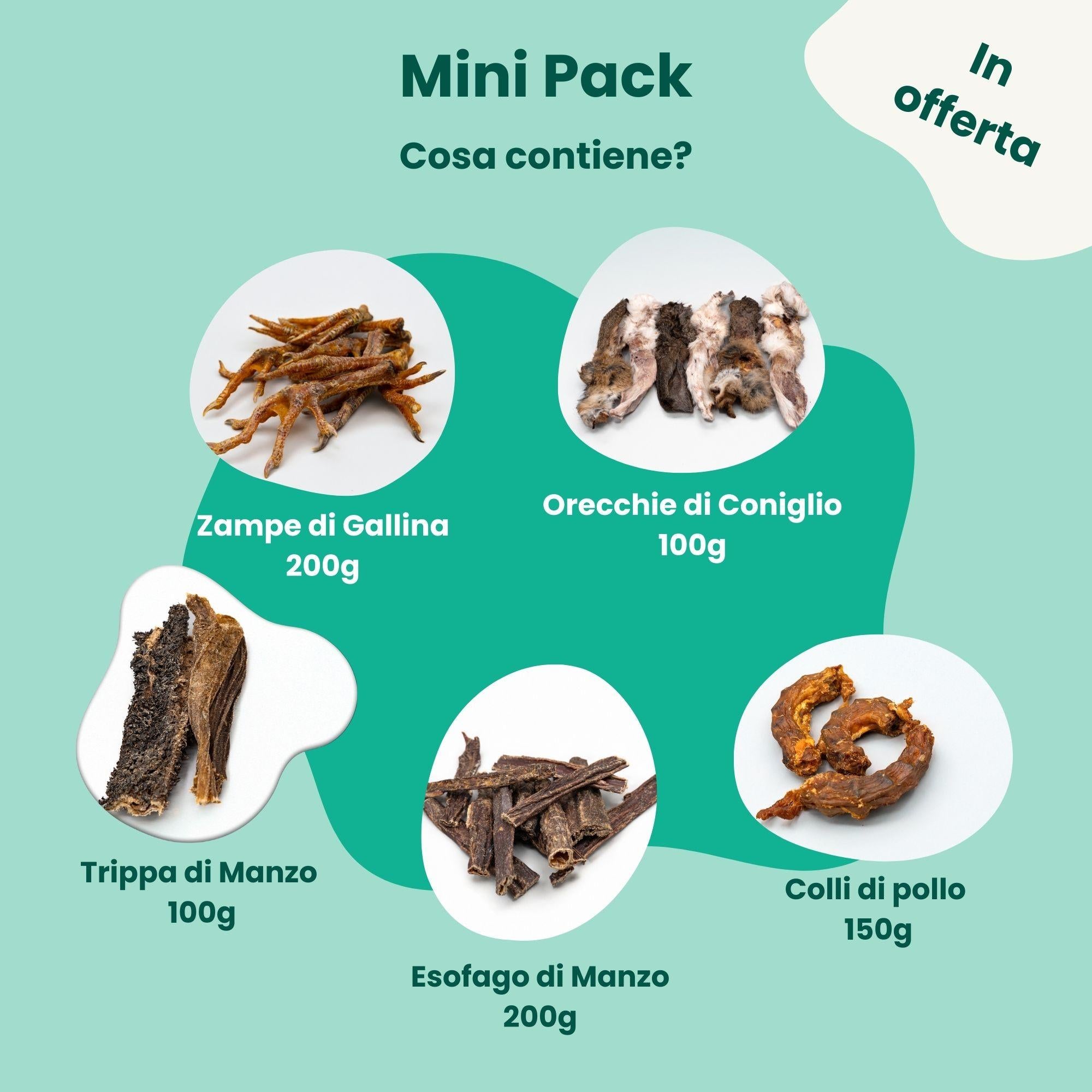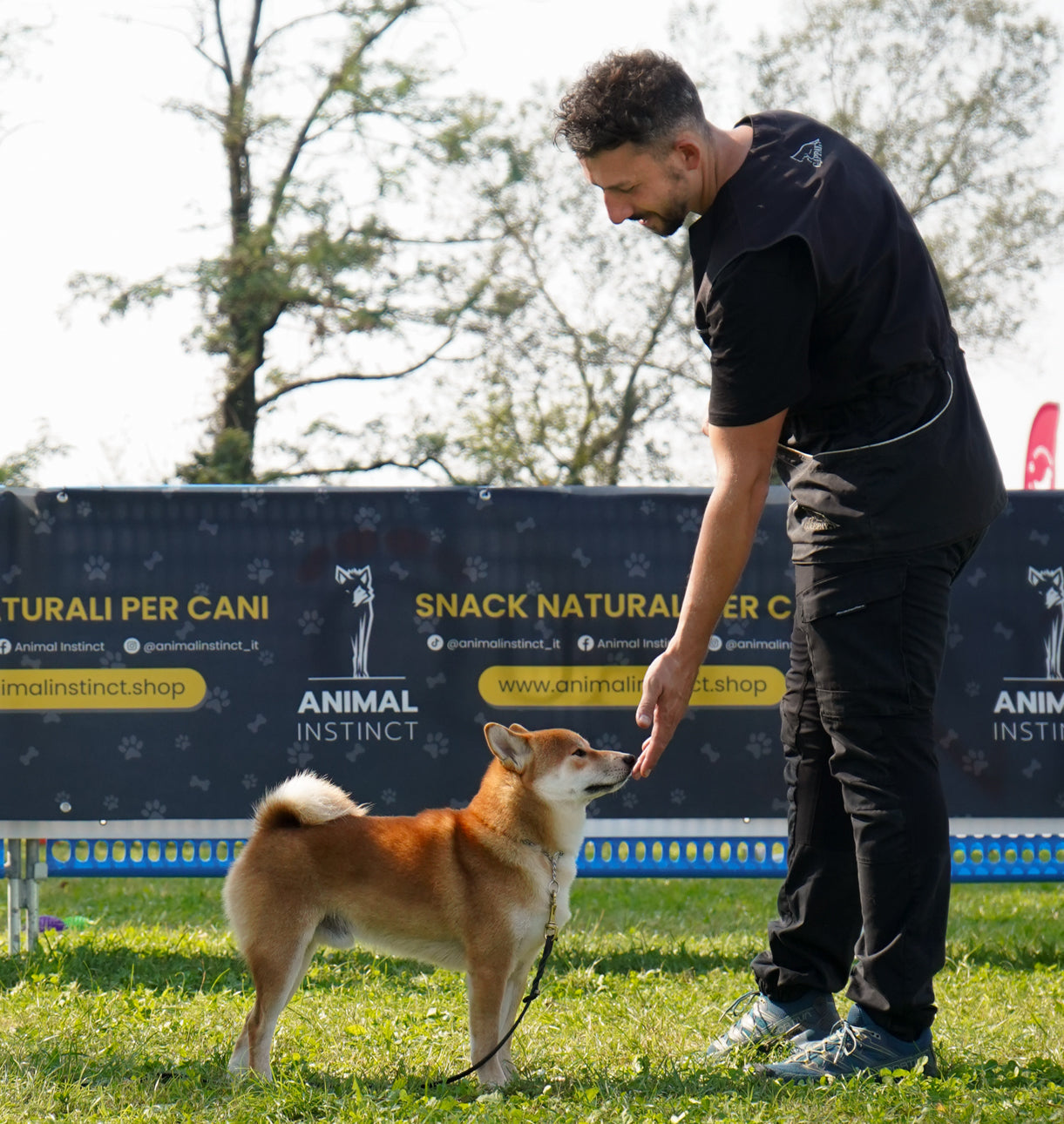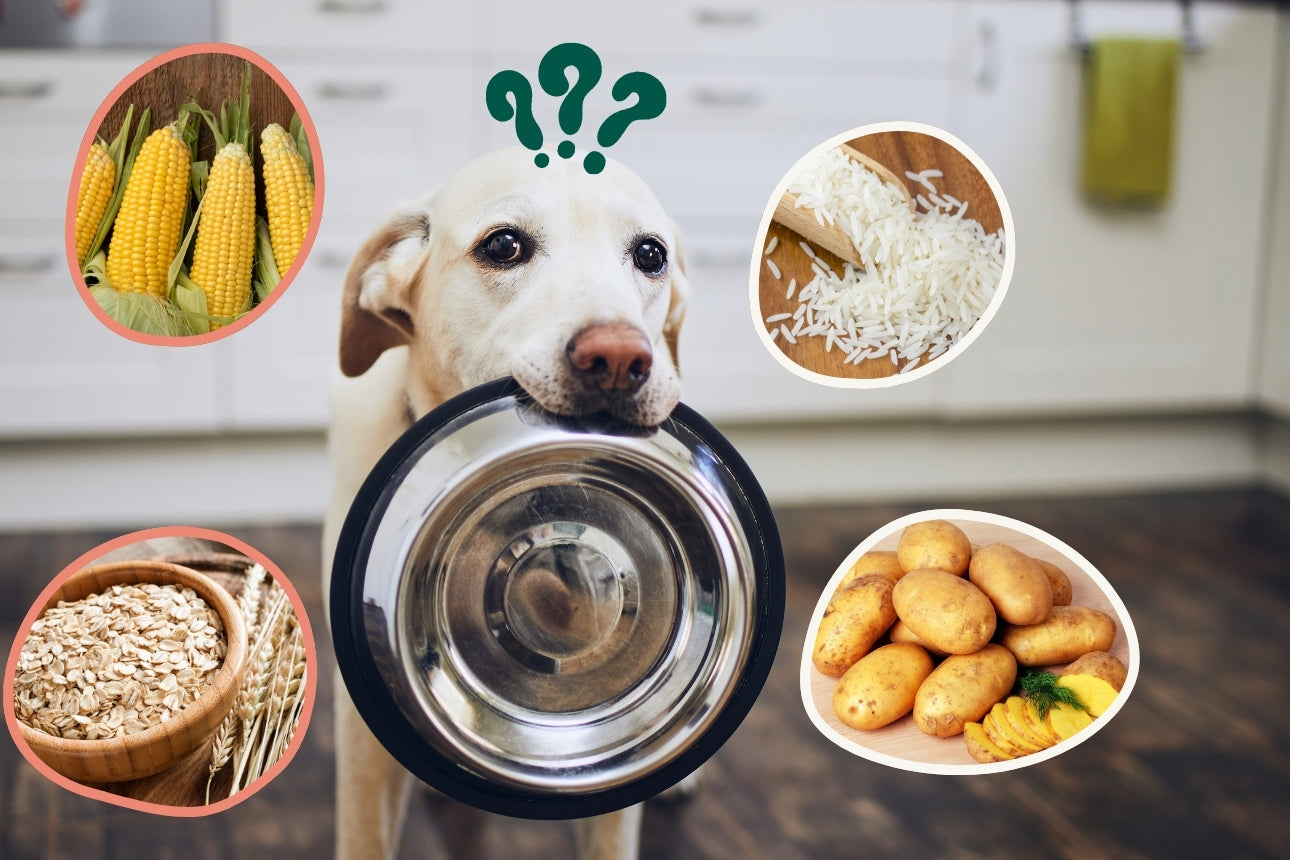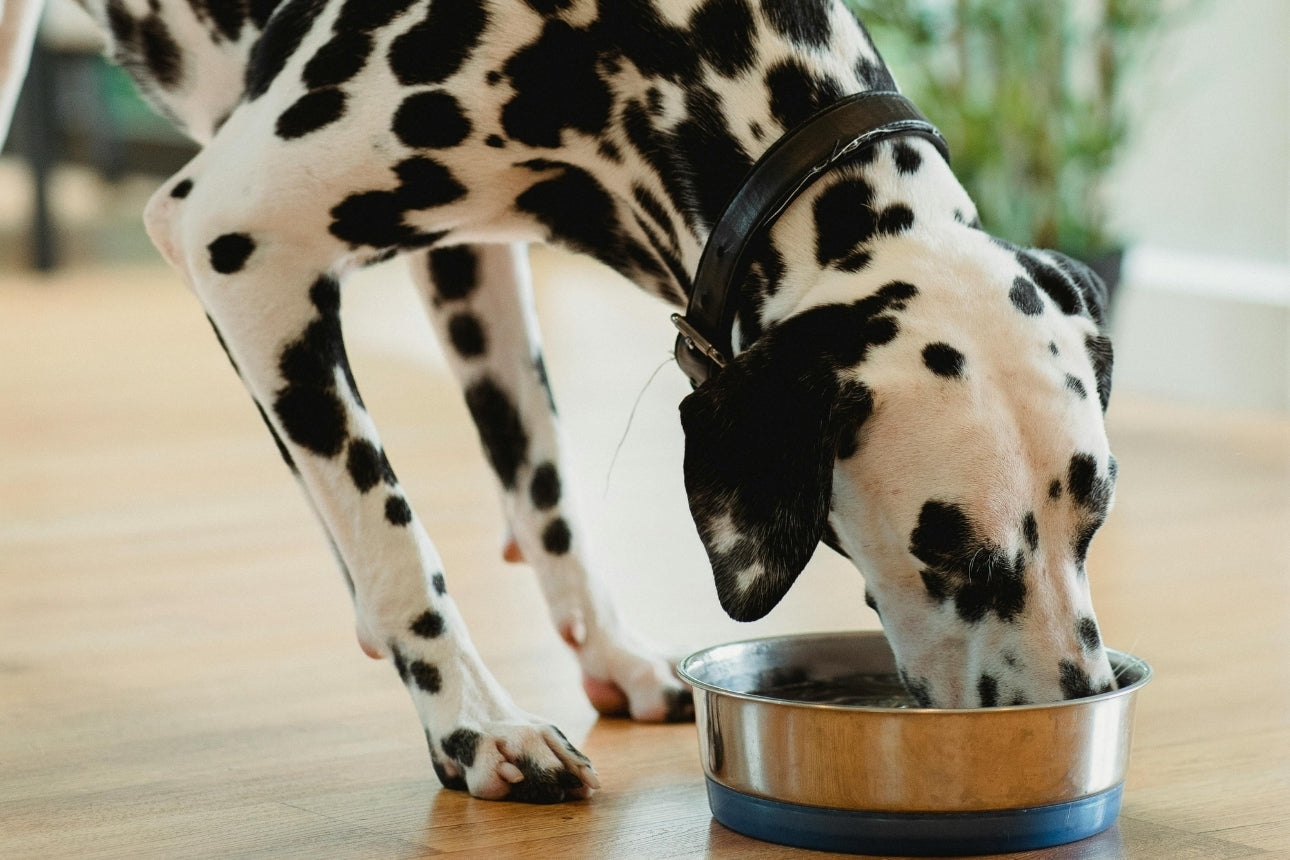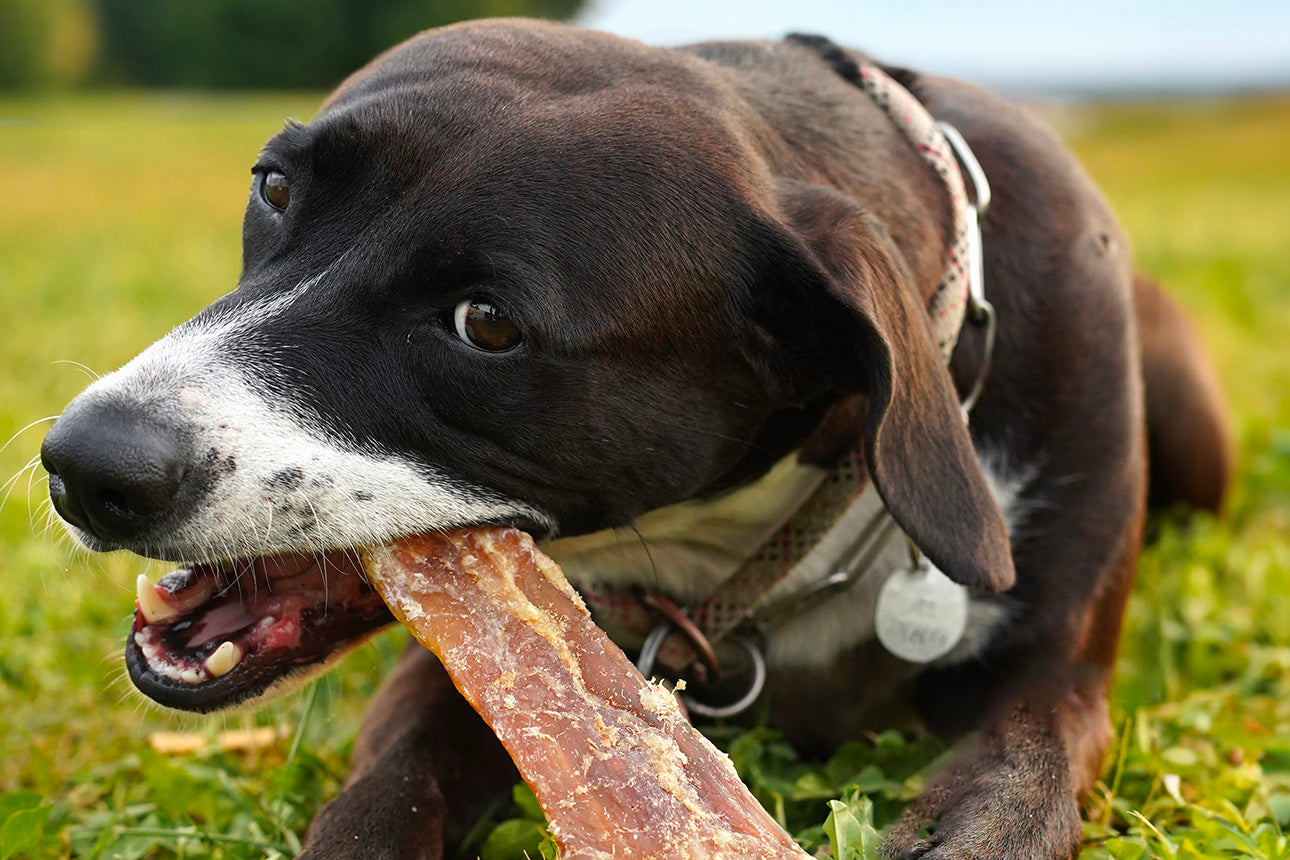
WHY IS CHEWING IMPORTANT FOR DOGS?
Let's go and see together how correct chewing benefits the lives of our four-legged friends.
- By chewing, the dog learns to manage and have greater awareness of his mouth, a very important aspect because the mouth is their tool for exploration and learning.
- Chewing produces endorphins, which act as a natural antidepressant and therefore decrease the dog's stress and general anxiety.
- With chewing, the levels of SEROTONINA increase, known as "the good mood hormone" as it has great benefits on appetite, memory and learning. It also lowers adrenaline levels, inducing a state of general relaxation.
- The mechanical action of chewing acts as a natural cleaning of the teeth, keeping them healthy and clean, it also strengthens the jaw muscles.

To satisfy your dog's masticatory activity, if you follow the barf diet you are certainly at an advantage, as OP (Meaty Bones) are a clear positive example to be able to satisfy this need, for all dogs that follow an industrial diet instead this need is not satisfied by croquettes, it is therefore even more fundamental to use alternatives, such as dried chews, learning to choose them carefully, discarding further industrial products rich in preservatives, dyes and additives, preferring instead healthier and more natural snacks.
Be careful though, chews are not all the same!
They should be selected on the basis of your dog's chewing experience (beginner - medium - expert level), on the basis of the dog's age (puppy - adult - senior) and on the basis of size (small - medium/large).
Chews vary in consistency and hardness, depending on the needs of each dog.

Giving too hard and too demanding a chew to an inexperienced dog can be detrimental as he would not know how to manage this resource and could stress himself unnecessarily and not eat it. When instead it must be a relaxing and pleasant moment for the dog. For this reason chews must be introduced gradually, choosing the simplest ones first and gradually moving on to the more demanding ones.
A dog novice with natural chews can still be helped by the owner by holding one side of the chew, thus giving importance to the object, and inviting the dog to sniff and bite it on the other side, in this way the chewing moment becomes also a time to work on resource sharing. Fundamental to correctly manage possessiveness over them.
Share:
🦴 Completa l’esperienza 🦴
🦷Starter Pack: Cani alle prime armi
🦷🦷Mini Pack: Cani di taglia piccola/media
🦷🦷🦷Maxi Pack: Cani di taglia grande ed esperti
Example Product Title
Regular priceUnit price per



